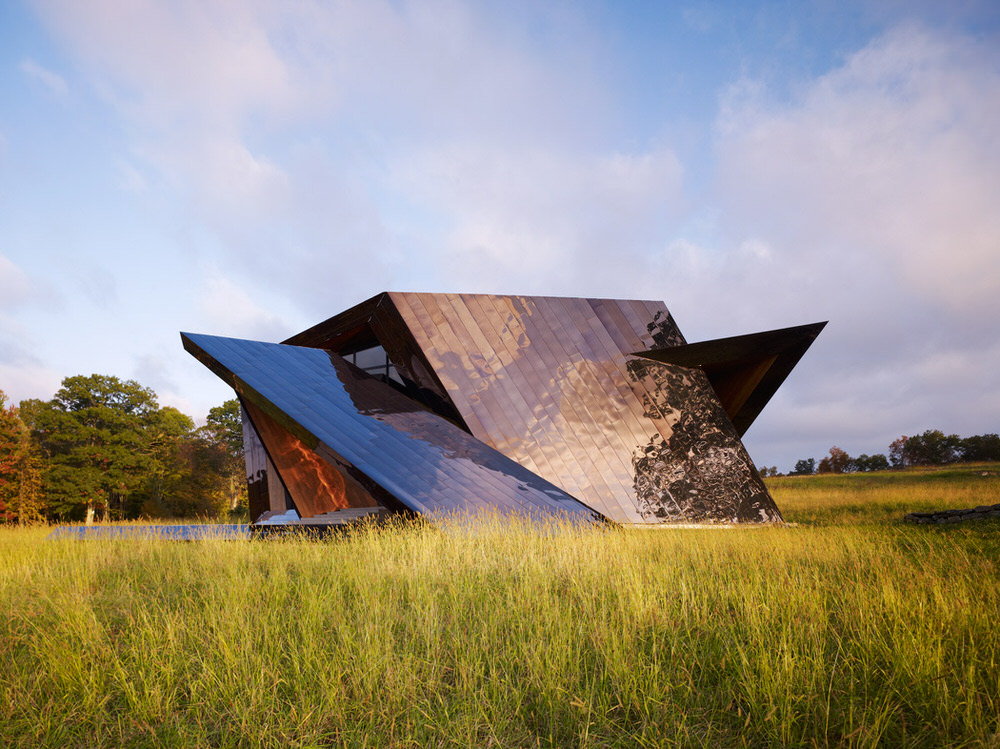
Set within the arcadian pastures of western Connecticut, 18.36.54 House with its distinctly angular composition doesn’t exactly make much of an effort to blend in with its surroundings. Indeed, architect Daniel Libeskind has pointed out himself that ‘this bold design does not sacrifice itself to its natural setting’, and that it instead ‘selectively incorporates the elements therein for the enhancement of both house and landscape.’
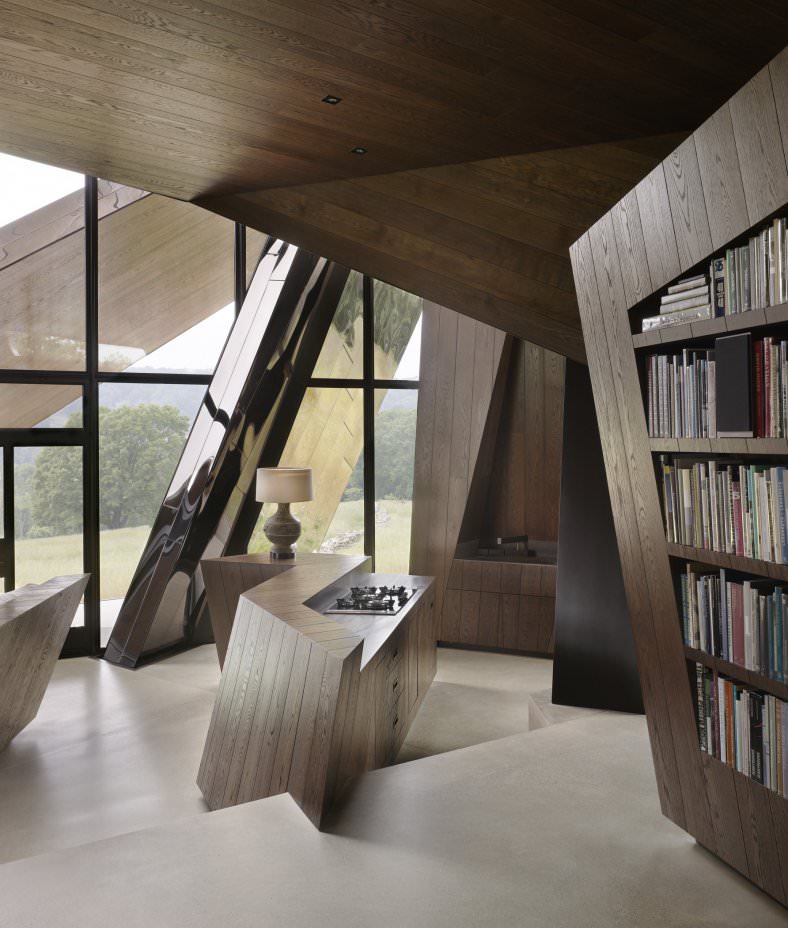
Whether by coincidence or careful planning, there are mathematical patterns embedded throughout the design of this house. The name 18.36.54 derives from the fact that the house’s unique geometric form is made up of 18 planes, 36 points and 54 lines. Perhaps this underling sequential pattern is what ultimately lead to the architecture being so aesthetically pleasing.
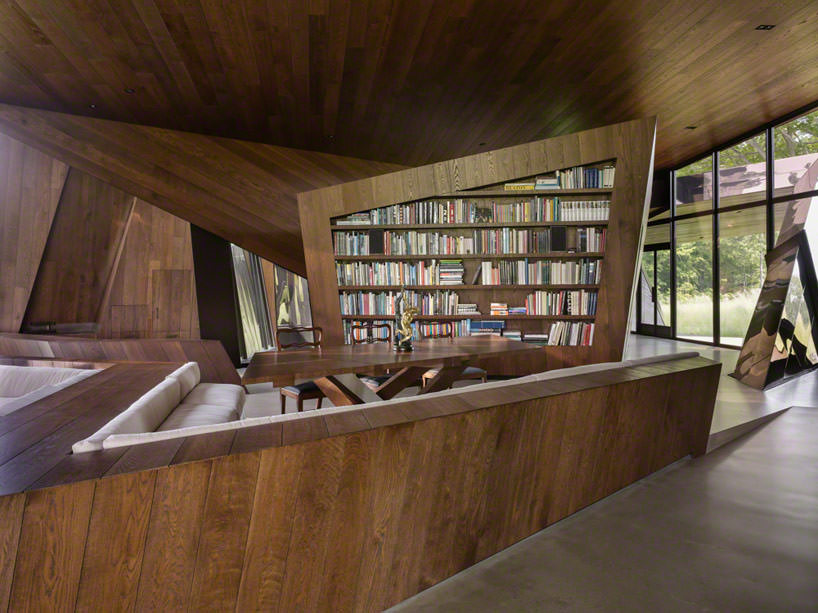
Allegedly, the clients, a ‘very rich art world couple’ said to Daniel Libeskind that ‘Whatever you design, we’ll ask you to make it more extreme.’ — and I’m guessing they got what they asked for.
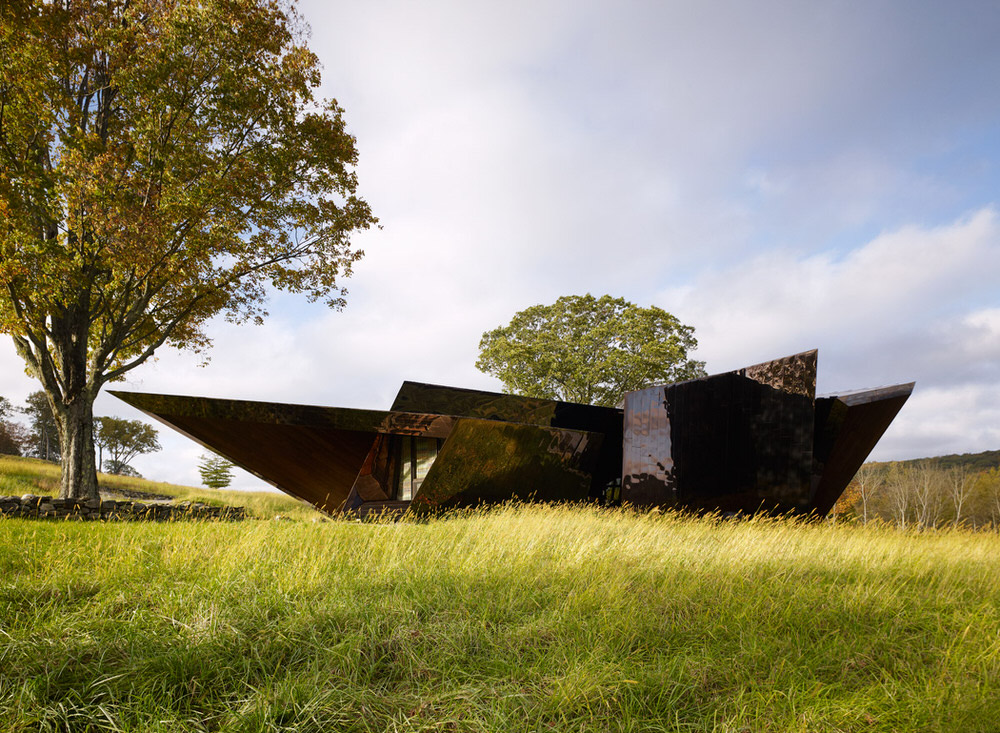
The exterior is clad in bronzed stainless steel with a mirrored finish while a more organic dark stained oak was used throughout the interior spaces. Despite the base colours of these two cladding mediums being somewhat similar, the materials ultimately couldn’t be more different and bear entirely contrasting properties.
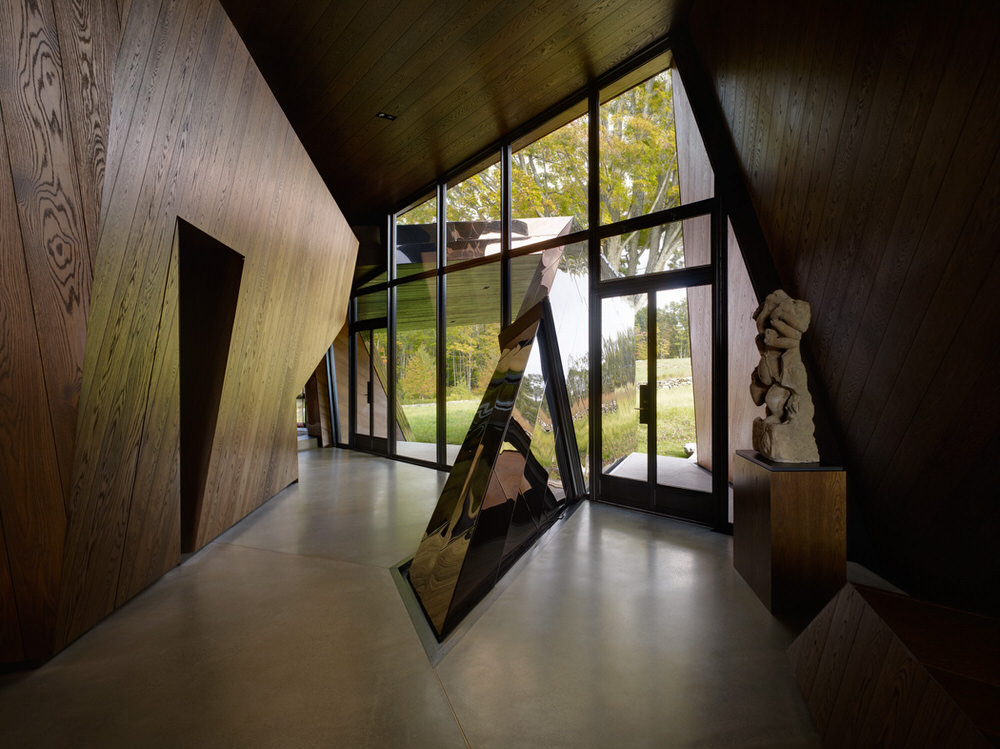
“[18.36.54 House] is never experienced the same way twice. Its reflective luster accentuates and exaggerates environmental changes as weather, time-of-day, and seasons turn around it.”
– Daniel Libeskind
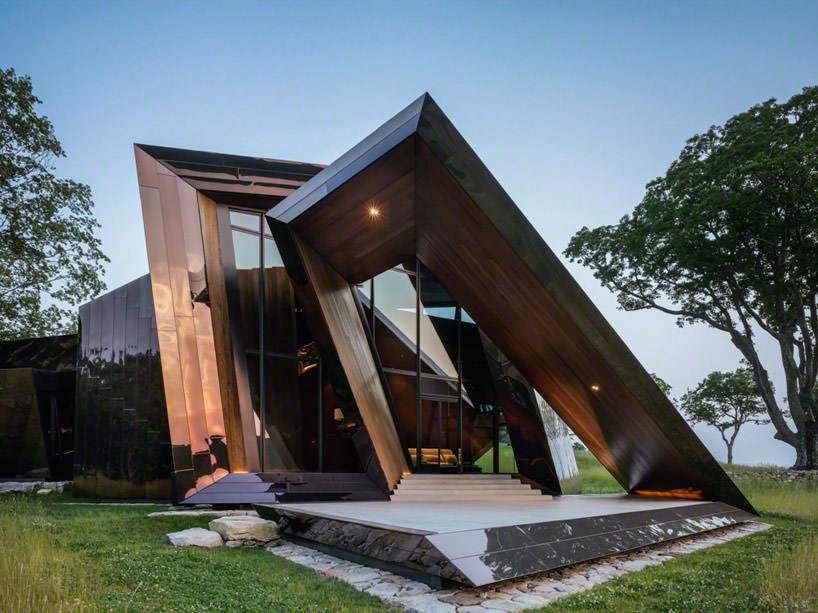
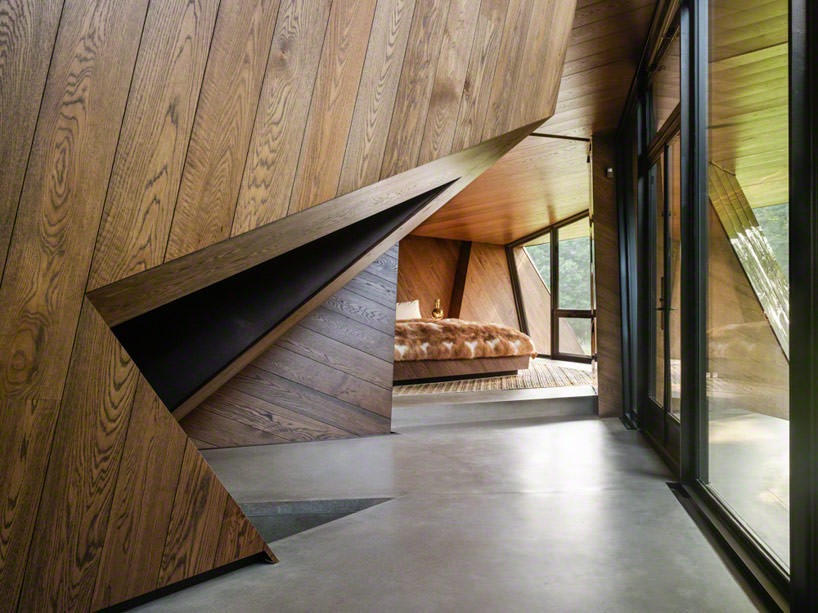
The interior of 18.36.54 House brings open plan to the next level and the entire floor plan is one continuously flowing space. Even the shower and bath are to be found nestled within a mere alcove formed by the folding of walls, and this unique layout did call for some creative measures to make work.
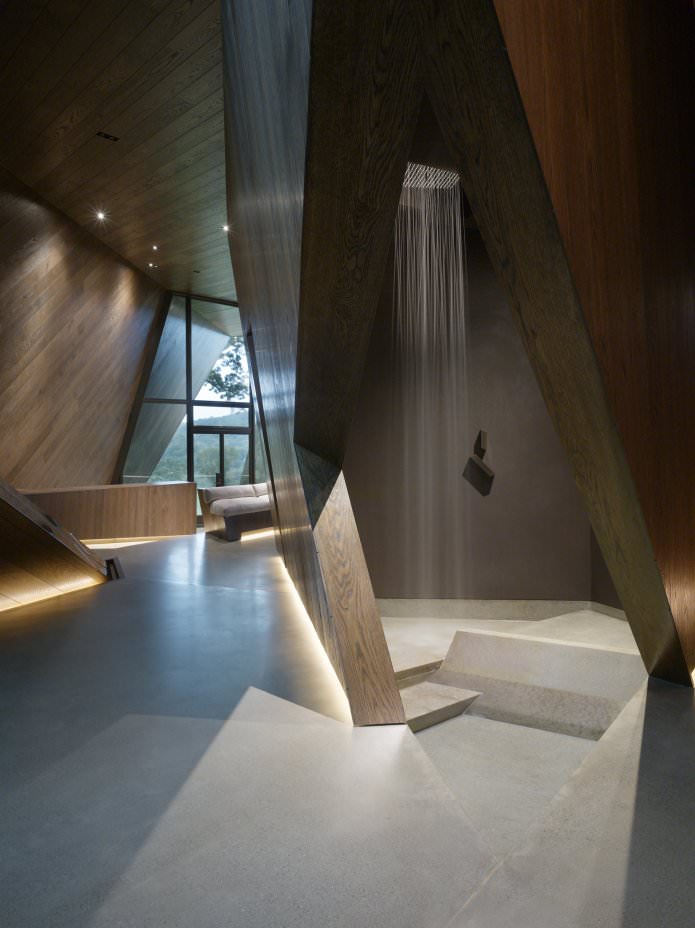
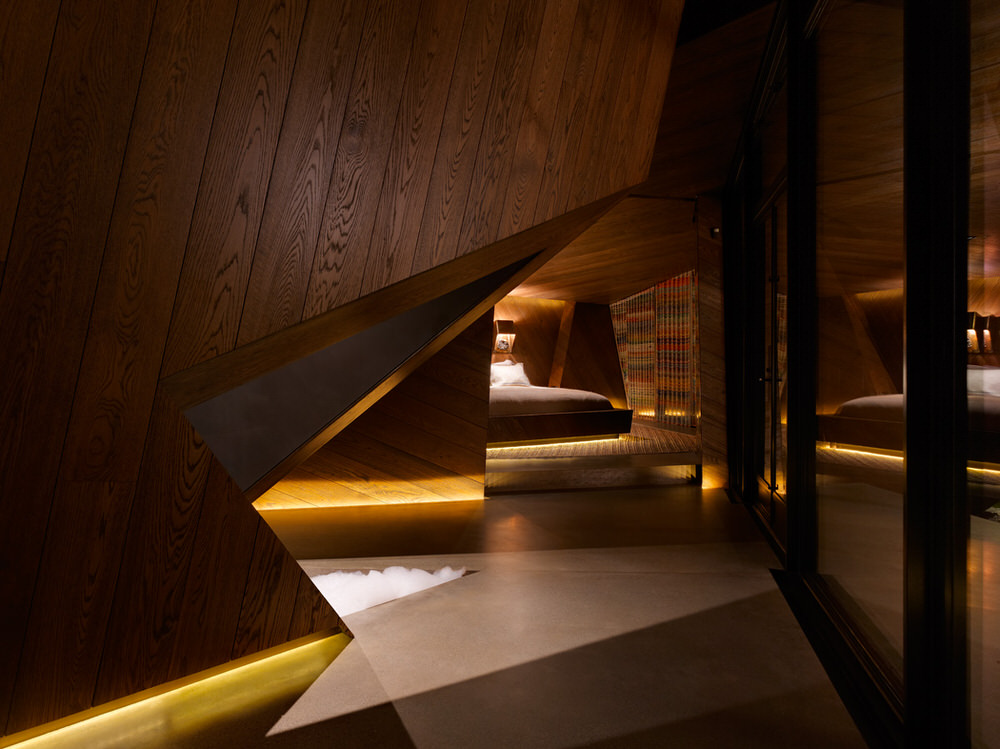
Libeskind made use of slight height variations in the concrete floor to create distinguishable spaces without having to resort to physically dividing them. This technique was also made use of by Tham & Videgård Arkitekter in Atrium House, and goes a long way in lessening the potential for homogeneity that can creep in with minimalist design.
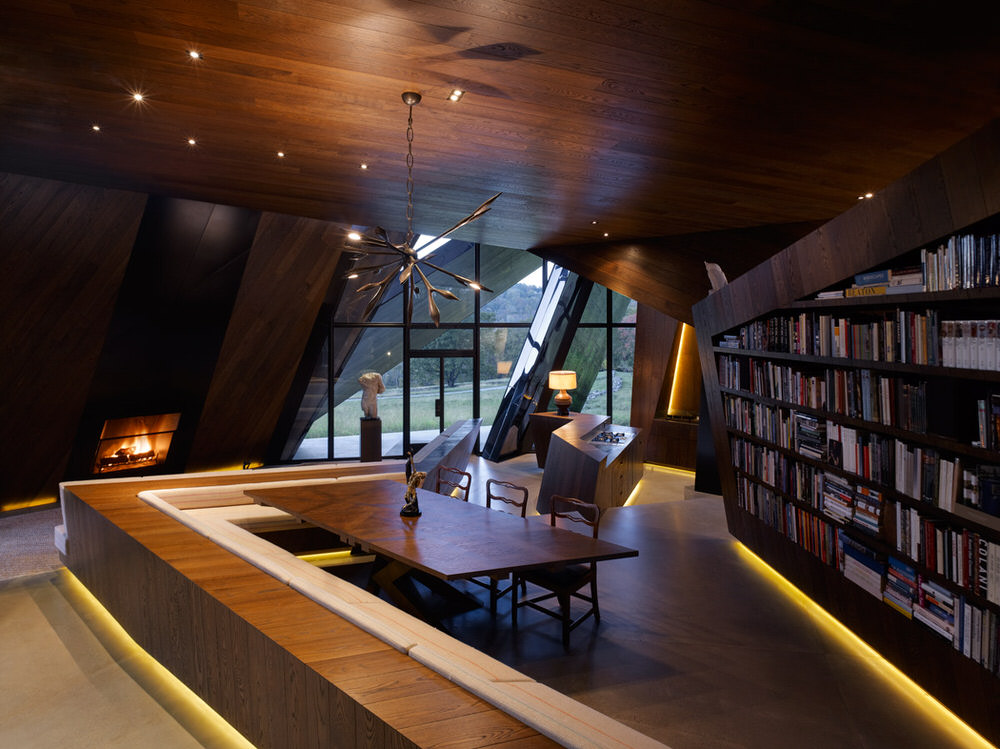
Architect: Daniel Libeskind
Photography: Nikolas Koenig and Marc Lins Photography
Share this Post


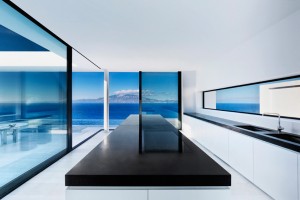
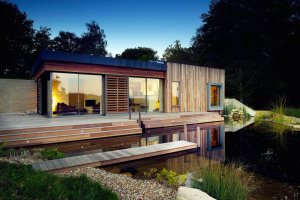
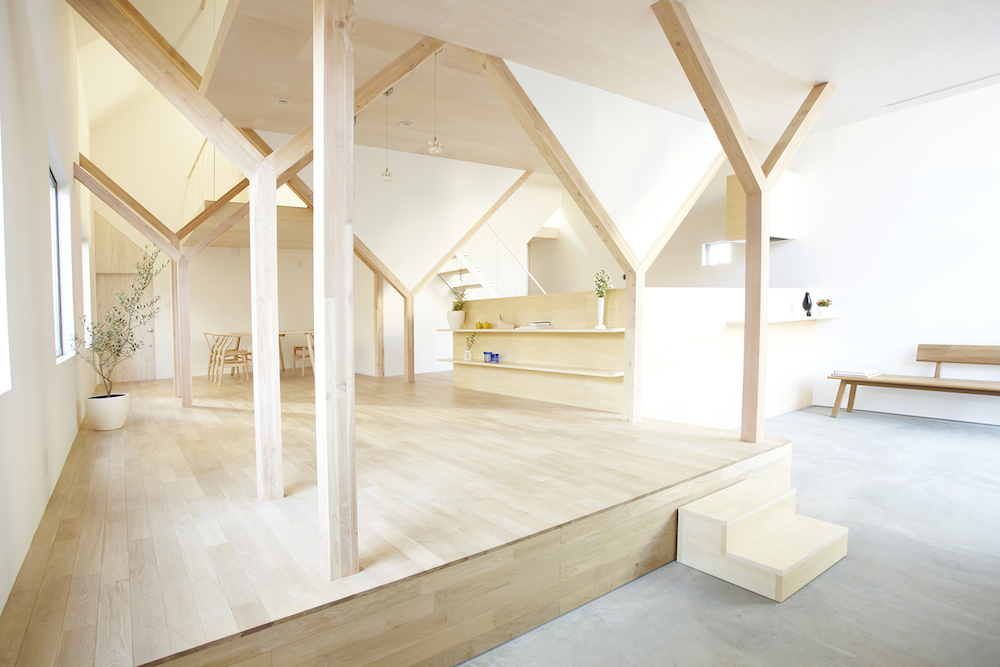
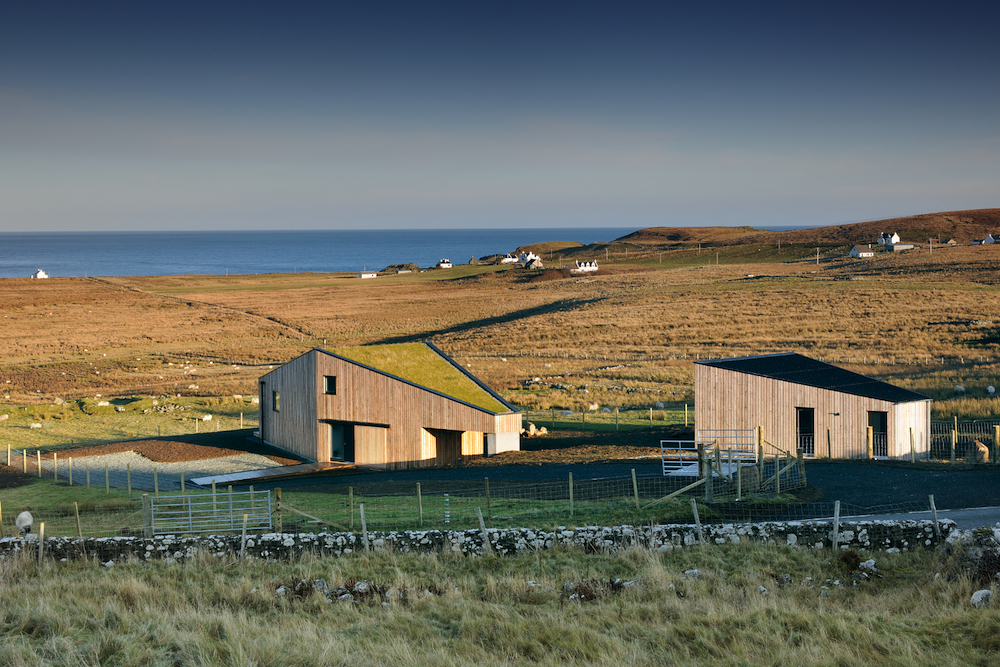
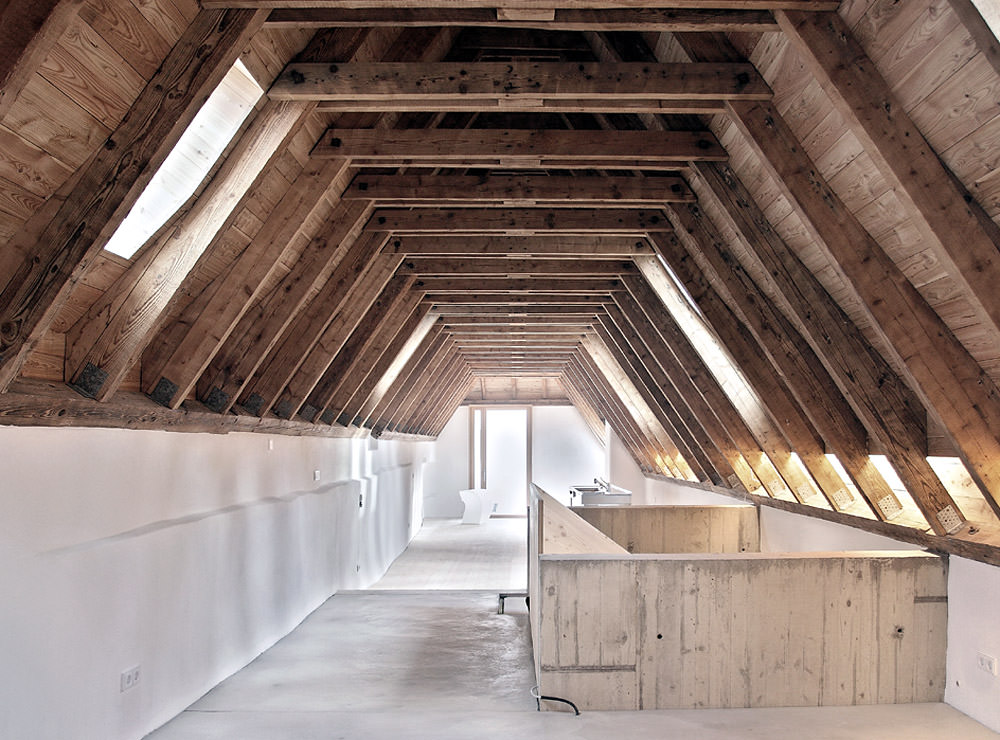
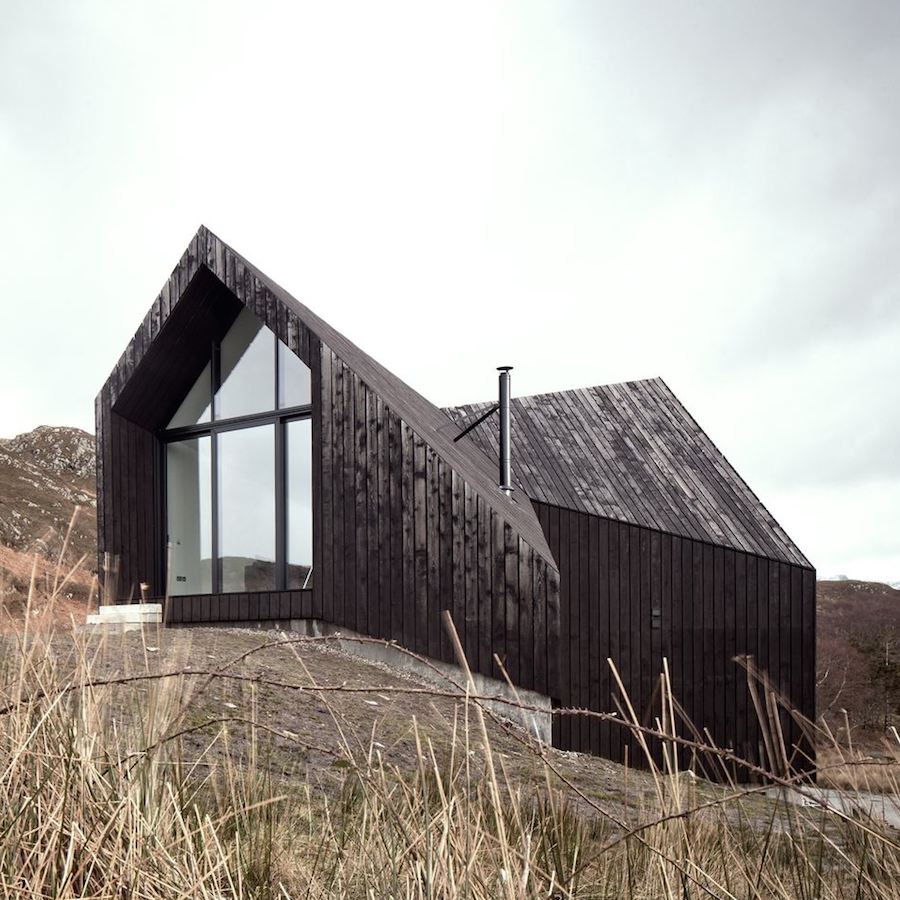
Comments
this place is almost surreal